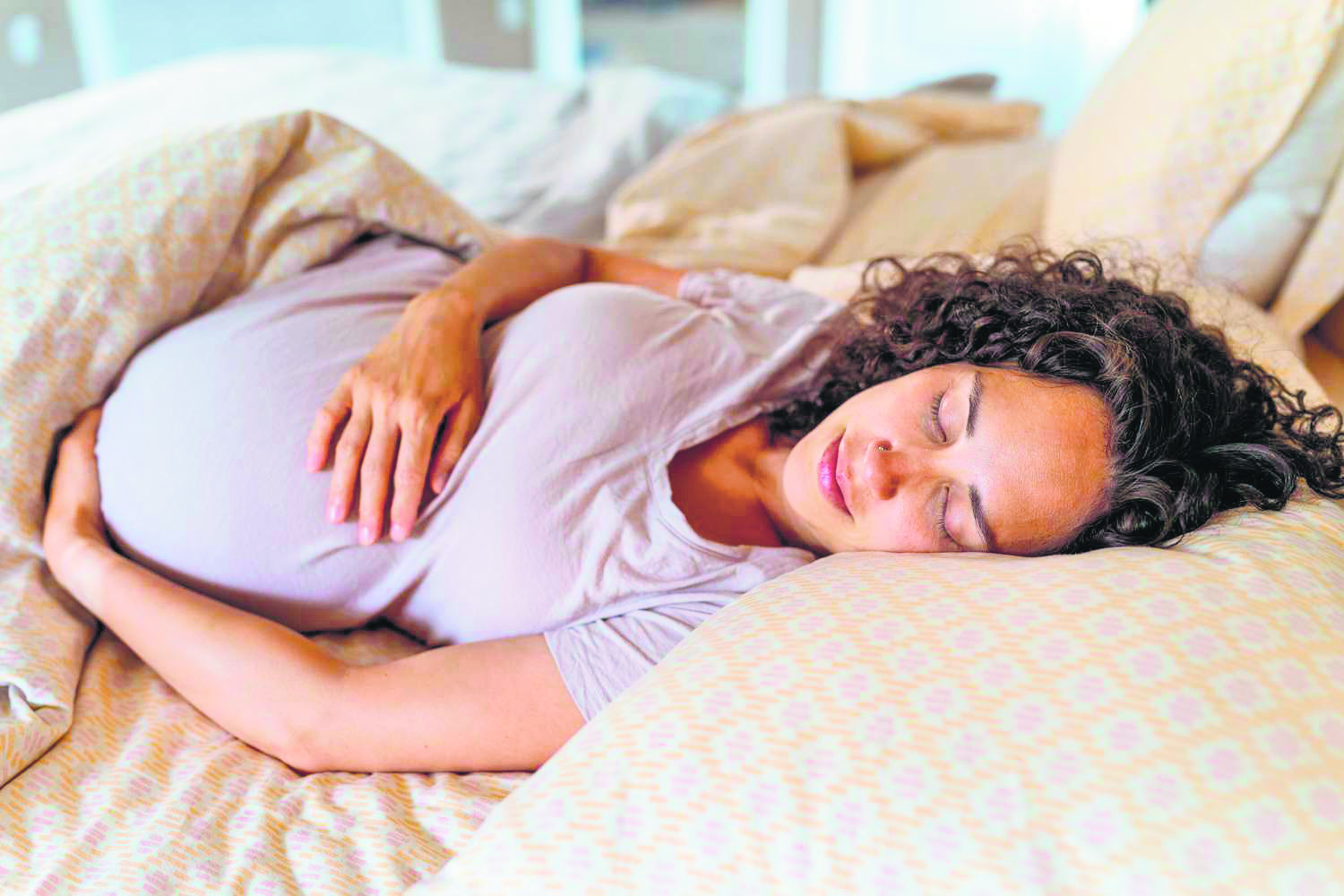Pregnancy marks a significant and celebratory period in a woman’s life, yet it frequently brings forth its share of difficulties, with disrupted sleep being among the foremost challenges. The complexities of sleep during pregnancy stem from a range of factors, encompassing hormonal shifts, physical unease, heightened anxiety, and the necessity for frequent trips to the bathroom. As the body undergoes significant changes to support the growing fetus, hormonal fluctuations, particularly increased levels of progesterone, can contribute to feelings of fatigue and drowsiness during the day, yet disturb sleep patterns at night. Additionally, the physical changes in a woman’s body, such as the growing belly and increased weight, can lead to discomfort and difficulty finding a comfortable sleep position. Moreover, the emotional and psychological aspects of pregnancy, such as excitement, anticipation, and anxiety about the upcoming changes, can contribute to restless nights.
One of the primary culprits of sleep disturbances during pregnancy is the frequent need to urinate. As the uterus expands, it puts pressure on the bladder, leading to increased urgency and frequency of bathroom visits. This can be particularly bothersome during the night, interrupting sleep and making it challenging for expectant mothers to achieve a deep, restful sleep. To address this issue, it’s advisable for pregnant women to limit their fluid intake in the evening, especially a few hours before bedtime. While staying hydrated is essential for overall health and the well-being of both mother and baby, reducing the intake of liquids in the evening can help minimize nighttime bathroom trips and contribute to better sleep quality.
Physical discomfort, especially in the later stages of pregnancy, can make finding a comfortable sleep position a daunting task. The growing belly often makes it difficult to lie on the stomach, and sleeping on the back may lead to backaches and increased pressure on major blood vessels, potentially affecting blood circulation. The optimal sleep position during pregnancy is on the left side, as it helps improve blood flow to the uterus and kidneys, reducing the risk of swelling and enhancing overall circulation. Placing a pillow between the knees and another one under the abdomen can provide additional support and alleviate some of the physical discomfort associated with sleep.
Furthermore, hormonal fluctuations during pregnancy can contribute to increased anxiety and mood swings, which may interfere with sleep. Practicing relaxation techniques, such as deep breathing exercises, meditation, or prenatal yoga, can help calm the mind and promote a more restful sleep. Creating a bedtime routine that includes activities to unwind, such as reading a calming book or taking a warm bath, can signal to the body that it’s time to wind down and prepare for sleep.
Establishing a consistent sleep schedule is crucial for maintaining healthy sleep patterns during pregnancy. Avoiding stimulants like caffeine in the hours leading up to bedtime is also advisable, as they can interfere with sleep. Additionally, creating a comfortable and conducive sleep environment, with a supportive mattress and pillows, can make a significant difference in sleep quality.
While addressing physical and emotional factors is essential, it’s equally important for expectant mothers to communicate with their doctor about any sleep concerns. They can provide personalized advice and recommendations based on individual health and circumstances. In some cases, doctors may suggest the use of pregnancy pillows or other aids to enhance comfort during sleep.
Final Thoughts
Sleep challenges during pregnancy are common but manageable with the right strategies. By addressing physical discomfort, managing hormonal fluctuations, and establishing healthy sleep habits, expectant mothers can improve their sleep quality and overall well-being. It’s crucial to prioritize self-care during this transformative time, recognizing that adequate and restful sleep is not only beneficial for the mother but also contributes to the optimal development and health of the growing baby.
The author is Senior Consultant (Obstetrician and Gynaecologist) at Apollo Cradle & Children’s Hospital, Chirag Enclave- New Delhi.








